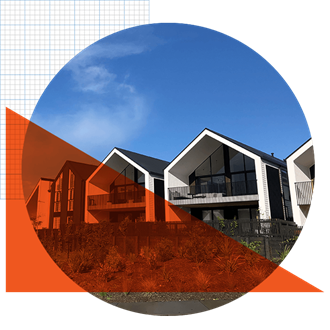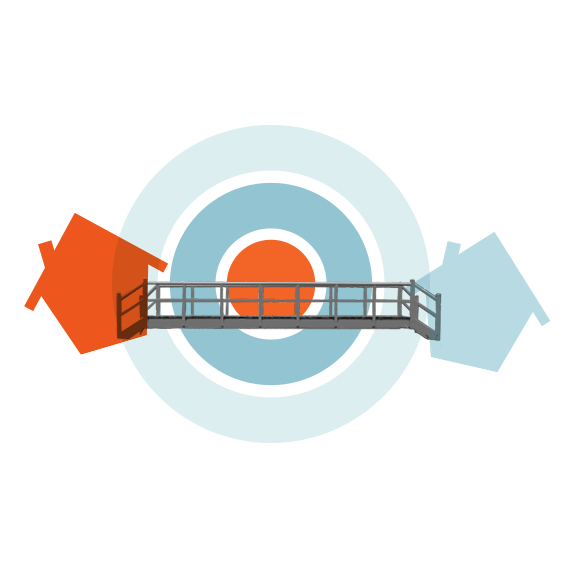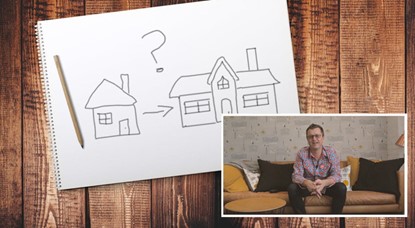Moving House
Changing properties is a bit more complex than it was buying your first home. You might have questions like "should i buy or sell first?" and "what happens to my mortgage when I move?"
If you’re looking at getting into your next home, talk to us first. It’s a great time to review your financial position and make sure you’re getting the best possible deals and advice.
Book a chat with an adviser

When you're considering a move, there's a lot to think about. We can help.
- Should you buy or sell first?
- How do you sort out bridging finance?
- What IS bridging finance?
- Should you pay to stage your home for selling? How do you choose a good agent?
We'll answer these and more. Our brokers are here to make the process easier, so you can spend more time on the important stuff like searching for your next dream home.

Review your financial situation
We'll make sure your mortgage is taken care of when you move house and ensure you've got the best rate and mortgage structure.

More lending options
We've got relationships with all the banks, plus non-banks too. More options means a better deal for you.

Our advisers aren't incentivised
They're paid the same no matter which lender you end up with, so you know you won't get pushed into a loan you don't want or can't afford.

Sort the deals from the duds
We love putting properties under the microscope. When you find a potential home, we'll check it out and make sure you're not buying a lemon.
Check out the video of Courtney's story, she's one of our favourite clients and we helped her and her family into their second home.
What happens to your mortgage when you move house?
What a lot of people don’t realise is when you move house, you can move your mortgage with it.
Say you’ve got a really good rate on your current mortgage and you don’t want to lose it. If you're still borrowing the same amount, we can move the mortgage rate from one property to another. This is a smooth process if settlement for both properties is the same day. Of course lining both up for the same day isn't always possible, so don't fret - there are options for that too, like bridging finance.
Another common option is paying off your home loan in full when you sell, and taking out a new one against the new property.
If you need to borrow more for the new property, we can approach the bank on your behalf and make sure you get the best deal.
When you’re repaying your loan once you’ve sold, you may have to pay break fees so before you sign anything, get in touch with one of our team to chat through your options.


Bridging finance
In a perfect world, you'd sell your house one day and land the perfect gem the next, then settle both on the same day. But we live in the real world where that's not usually the case. If you end up buying first, there are two kinds of bridging loans you could go for:
- Open-ended bridging is where you buy first and intend to sell (but haven't sold yet.) Banks are reluctant to do open-ended bridging finance unless you are in a strong enough financial position to support both mortgages.
- Closed bridging is where you buy, and before settlement your existing house is sold under unconditional contract but is yet to settle. This is generally easy to finance.

More lenders, more options
Plus a network of over 5,000 peer-to-peer lenders
Not only do we have access to more banks than other brokers, but we have a community of over 5,000 peer-to-peer lenders for a custom solution if you don't quite fit the bank's box.
Buy first
- Buying first means you can get started on your house hunt early and if your needs are specific, you can wait until the dream house you're after is on the market. This is a riskier strategy, but you can mitigate the risk by negotiating a long settlement (say three months) then putting your house on the market.
- The other option is to buy "subject to" selling your place. This is unlikely to work in a market that has a shortage of listings or on a popular property – vendors will probably not accept a “subject to sale” offer unless it is the only one they have.
Sell first
- Sell with a long settlement so that you have time to buy.
- With this strategy you will be able to assess the market demand and price for your property and with a negotiated delayed settlement you could put yourself in a very strong position as a cash-buyer to negotiate a good deal if the market suits that situation.
- Sell "subject to" finding another house. This is unusual but we have seen this where our client was the buyer. In a market that is short of listings, buyers will be more open to a long settlement if it means buying the right house.
Have a gander at our blogs
You'll find some useful insights on the joys of moving house.
All articlesWhat happens with your mortgage when you move house?
There are a few different ways your mortgage can work with in your move, as JB explains.

Should you stage your home for sale?
Staging: It's something of a divisive subject in the property world. Namely, should you do it, and if you do, how mu...
Buy first or sell first?
When you have established yourself on the proverbial property ladder you will at some point come to the decision to ...





